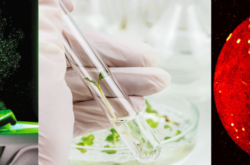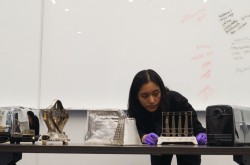Changing the shape of drug delivery
This article was originally written and submitted as part of a Canada 150 Project, the Innovation Storybook, to crowdsource stories of Canadian innovation with partners across Canada. The content has since been migrated to Ingenium’s Channel, a digital hub featuring curated content related to science, technology and innovation.
A University of Toronto spin-off finds success in commercializing new drug development technology
By Malorie Bertrand
Like a sculptor to clay, organic chemist Andrei Yudin and his team manipulate the shape of large molecules using chemical reactions to make them orally absorbable. Complex molecules that perform sophisticated tasks to treat certain diseases are typically too big to be orally absorbed such as smaller, simpler molecules, such as Aspirin. With the help of equipment funded by the Canada Foundation for Innovation in their University of Toronto lab, Yudin and his team have successfully created large, orally absorbable molecules derived from peptides and are looking to develop treatments for conditions such as irritable bowel disease through Yudin’s spin-off, Encycle Therapeutics.
“Irritable bowel disease is a very debilitating illness and right now, there are no simple solutions to treating the disease,” Yudin says. “We’re trying to develop orally bioavailable molecules. We’re sort of architects; we take these molecules and try to change their shape, make them longer, smaller, larger or rounder, rectangular — all at a small scale. This work enables us to come up with some solutions.”
Encycle, which employs nine people, recently received $2.85 million in financing through Takeda Ventures, Inc. in partnership with Accel-Rx Health Sciences Accelerator, BDC Capital and MaRS Investment Accelerator Fund. This funding will help the company advance its pipeline of novel therapeutics, including its treatments for inflammatory bowel disease.
Finding ways to apply basic chemistry has always been important to Yudin. “We are trying hard to seek translational applications,” he explains. “I’ve always been drawn to the concept of turning basic science into applications that we can in fact take advantage of.”
Encycle has also entered into several ongoing research collaborations with major pharmaceutical companies, including AstraZeneca, GSK, Merck, Pfizer and Takeda. AstroZeneca, for example, wants to decrease a particular protein in the body that is associated with Huntington’s disease, so they are testing Encycle’ molecules to see if the molecules can latch onto the protein and inhibit it.
















